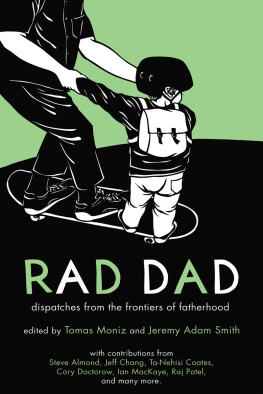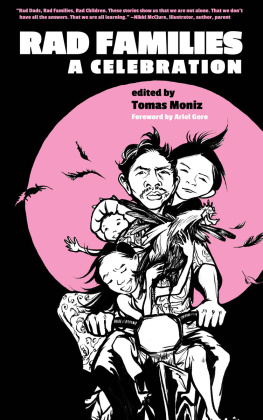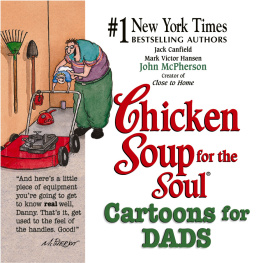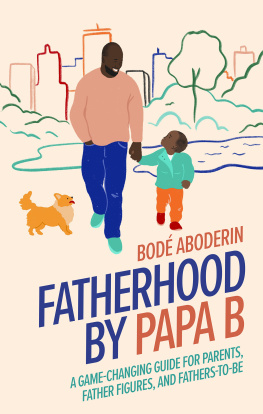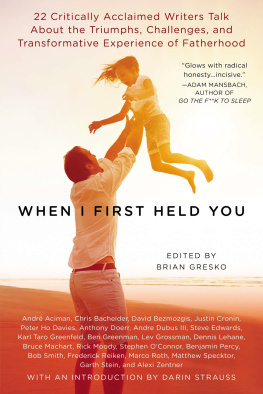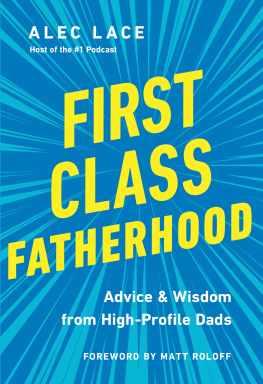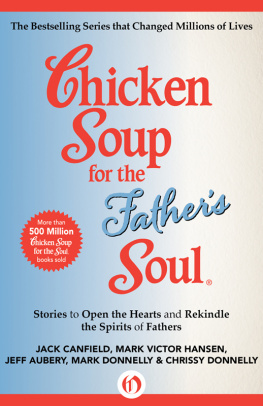

Rad Dad: Dispatches from the Frontiers of Fatherhood
2011 Jeremy Adam Smith and Tomas Moniz
This edition 2011 PM Press
All rights reserved. No part of this book may be transmitted by any means without permission in writing from the publisher.
ISBN: 978-1-60486-481-6
LCCN: 2011927948
Cover art by Nikki McClure
Cover and interior design by Josh MacPhee/Justseeds.org
PM Press
PO Box 23912, Oakland, CA 94623
www.pmpress.org
Microcosm Publishing
636 SE 11th Ave., Portland, OR 97214-2405
www.microcosmpublishing.com
Printed on recycled paper by the Employee Owners of Thomson-Shore in Dexter, Michigan.
www.thomsonshore.com
Contents
INTRODUCTION
The Politics of Rad Dad, or Parenting Is about More than Pee, Poop, and Puberty
Tomas Moniz
T he book you hold in your hands combines the best pieces from my zine Rad Dad, which I started five years ago, with some additional contributions from the blog Daddy Dialectic, which Jeremy started four years agotwo kindred publications that have tried to explore parenting as political territory. Both of these projects have pushed the conversation around fathering beyond the safe, apolitical focus most books and websites stick to. Both have worked hard to create a diverse, multifaceted space in which to grapple with the complexity of fathering.
Of course, not everything is serious. I have sold lots of zines with stories of my son battling a bout of explosive bowel moments in Chiapas or my daughter wanting her first bra or my youngest daughter asking awkward questions within earshot of the subject of those questions, like, why do some boys wear eyeliner? And the truth is I like writing (and reading) about those things. Theyre funny, people get a kick out of them, and I usually seem smarter than I actually ambut those very same situations or questions usually also allude to larger political issues that are a little more difficult to address. I have always known that what Ive wanted to do with a zine like Rad Dad is move beyond sharing stories about bodily functionsas pleasurable as they might beand into the realm of how our parental choices embody or contradict or challenge our values and political intentions.
I understand why many parents might resist putting politics and parenting together. Sometimes it feels overwhelming to just make my kids dinner, let alone consider the implications of taking them to their favorite fast food joint. Sometimes I regret the choices Ive made; sometimes I regret them even while Im making them. My parenting has always been rife with contradictions, like debating whether to put our six-month-old in daycare five days a week so we both could stay in school, or whether to rent Mean Girls for the tenth time (because Lindsay Lohan is such a good role model for preteen girls!). It seems like I make choices every day that challenge what I believe and how I aspire to parent. However, Id like to think that parenting is a lot like revising an essay: you gotta come back to things again and again. You rephrase, rethink, at times regret, but youre always willing to return and reconsider.
Ill be honest, it has been terrifying at times to examine the political implications embodied in my relationship with my children, their mother, and notions of family in general. Those are the moments when I want to tell stories about pee and poop and puberty, just to avoid the scary stuff. In the first issue of Rad Dad, I confessed that I waited years for someone else to do a zine that would foster parents, and particularly fathers, political awareness. Ill tell you why I was so hesitant: I wasnt sure how to talk about parenting without it sounding narcissistic or self-satisfied or privilegedSee, look, I change diapers, arent I a good father? or Let me tell you about how I once got up and rocked the baby to sleepwhile the mother still did the majority of housecleaning, errands, and other parental responsibilities.
I knew I wasnt alone in this fear. Many fathers I met were uncomfortable writing about parenting because of this issueas well as the internalized belief that we fathers dont have much to offer or say about parenting. In the first post to his blog Daddy Dialectic, my coeditor Jeremy said something similar: Friends had suggested that I should write about being a mostly stay-at-home dad. Until last week, I always said, No, Im not going to write about being a dad; not yet, anyway... Even in liberal, genderfucking San Francisco, Im still usually the only dad in Likos music and swim classes, and usually the only one at the playground before 5 p.m.... As a stay-at-home dad, Im supposed to be a trend [but] its a pretty small fucking trend.
So for us, Rad Dad and Daddy Dialecticlike Ariel Gores pioneering zine Hip Mamaare not just about parenthood. Theyre also about fighting the social power that men have over womenand beyond that, challenging all of the ways that some people have power over others. This book is a forum for men to reconsider intimately what it means to be successful and how capitalist notions of success are tied to the construction of male identity. Its a place to question the social stereotypes of fathering that for so long have been used to justify gender specific parental roles.
For example, there is nothing inherently wrong with a man providing the main income for a family and a woman being the primary caretaker. But this book says the decision needs to be transparent, needs to be a choice and not the default. Fathers need to actively consider what might be the underlying reasons for their decisions, about their priorities and how they father. But more than that, this book tries to help dads see the ways in which our fathering is inextricably tied to issues of social and environmental justice. The bestselling What to Expect When Youre Expecting lists every possible illness and injury that can kill or cripple your childbut it doesnt address the fact that children of color grow up with fewer services, poorer schools, more toxicity, more street violence and, as they grow older, fewer job opportunities than their white counterparts. Basically, I want people to step back when we announce were fathers and that were here and we aint leaving until some things change. These are lofty goals, but what better place to start than with ourselves?
So here it is. Read it to your kids (I did), your friends, give it to the men in your life as well as the women; forget gender and just give it to everybody. We give you this book as a prototype, hoping that it will lead to that community I still long to be a part of, those circles where we fathers can chew on parenting that isnt based in sexist, outdated gender biases, and yet that can be honest and open about those same pressures and images we face daily. I hope this continues with me and other fathers, because I know there are so many rad dads trying to parent in these dangerous times in loving, meaningful, authentic, and ultimately revolutionary ways.
Section One
BIRTH, BABIES, AND TODDLERS
Notes from a Sperm Donor
Keith Hennessy
S everal times in the past twenty years Ive been asked by straight and queer women to provide sperm for their baby-making. Until I was forty, I said no. Figuring out what family is or can be has always been problematic for me, a dissident gay male artist actively resisting masculine expectations while still prioritizing an art career. Donating sperm seemed too emotionally complicated and wrapped in my own desire for kids. Then one day a close friend, whom Ill call S., asked me to help her and her partner to have a baby. I surprised myself by saying yes.
Next page
